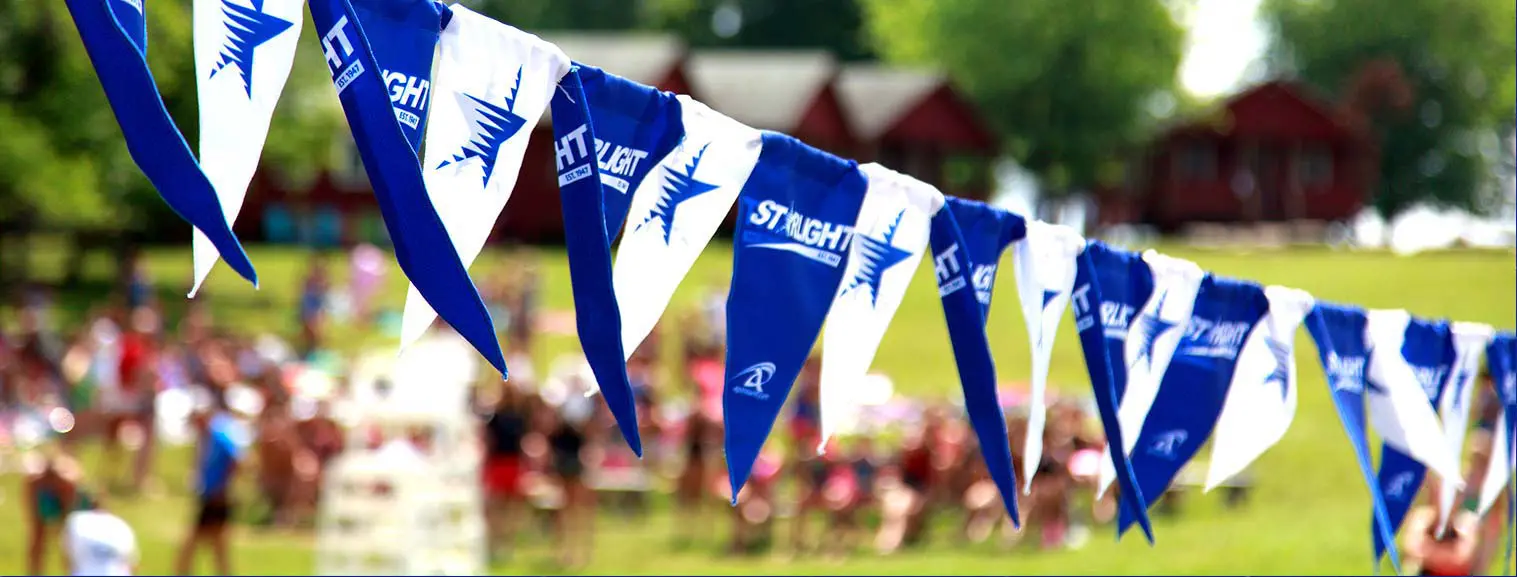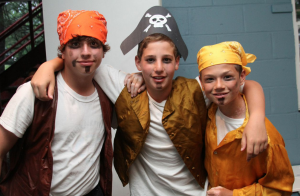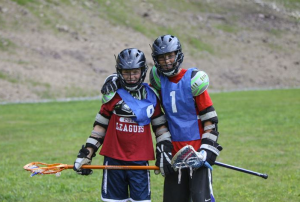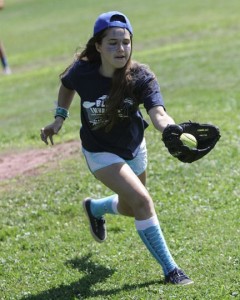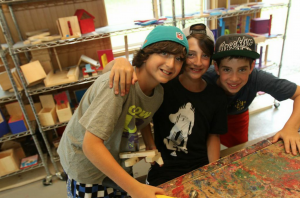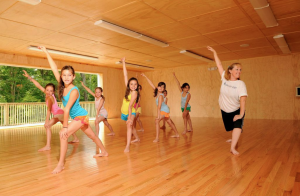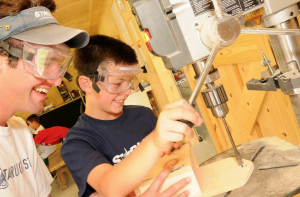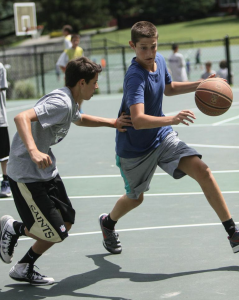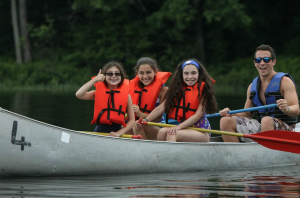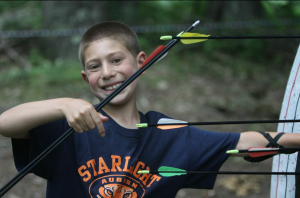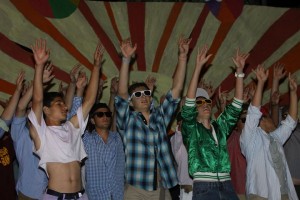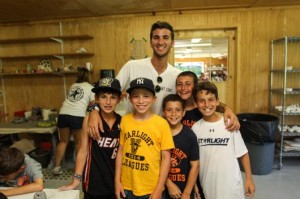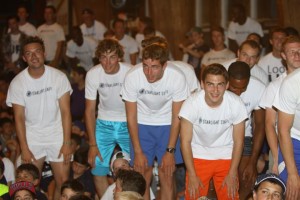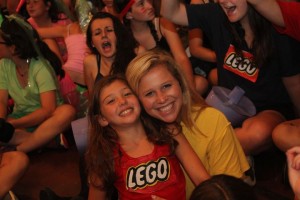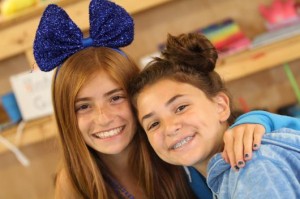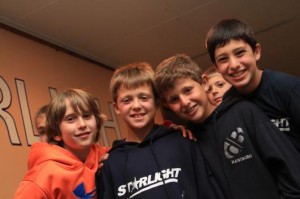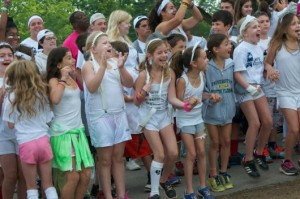Calling all athletes. If sports where you walk off the field sweaty, sore and completely exhausted are your thing, lacrosse should be at the top of your “Sports To Try” list. Lacrosse is a very physical, fast paced game that involves a lot of running, hand eye coordination and agility. It is a team sport, in which players equipped with long sticks with mesh nets at the end compete to throw, catch and pass a little rubber ball to their teammates, with the ultimate goal being to launch it into the opposing teams goal.
 Camp Starlight offers campers the opportunity to suit up and give lacrosse a try. This sport, just like all of the sports at camp, are organized, taught and supervised by trained coaches and professionals of the sport. Safety is always the number one concern, and campers are required to wear all necessary safety equipment including a helmet, mouthpiece and gloves. Players are educated on the rules and techniques associated with the game, and are watched carefully to ensure everyone has fun and injuries are avoided.
Camp Starlight offers campers the opportunity to suit up and give lacrosse a try. This sport, just like all of the sports at camp, are organized, taught and supervised by trained coaches and professionals of the sport. Safety is always the number one concern, and campers are required to wear all necessary safety equipment including a helmet, mouthpiece and gloves. Players are educated on the rules and techniques associated with the game, and are watched carefully to ensure everyone has fun and injuries are avoided.
Lacrosse games are played on one of many athletic fields across camp, and provide beautiful scenery for players and spectators alike. One of the cool things about playing lacrosse at camp is that you will be able to compete with other teams from other camps. This is exciting for those athletes who are naturally competitive and get excited about some friendly competition. Lacrosse is not just for campers who consider themselves all around athletes. It is a great sport for beginners too, and there is no safer place to try something new than America’s Finest Summer Camps. Lacrosse involves a lot of running and cardio work, which is great for weight loss and keeping your heart and lungs healthy. It also builds muscle and stamina.
Sports at Camp Starlight are designed for every camper, whether a trained athlete or a rookie. Camp Starlight keeps sports fun, and encourages friendly competition while keeping the old saying in mind, “it’s all about having fun.”
For campers going back to a middle or high school with a lacrosse team, they can use this summer to perfect their skills, learn the game, and fall in love with the sport before school tryouts.
Lacrosse is an action packed game and is a great way to meet new friends, stay healthy and add to your quickly growing list of “new things I want to try at camp.”



